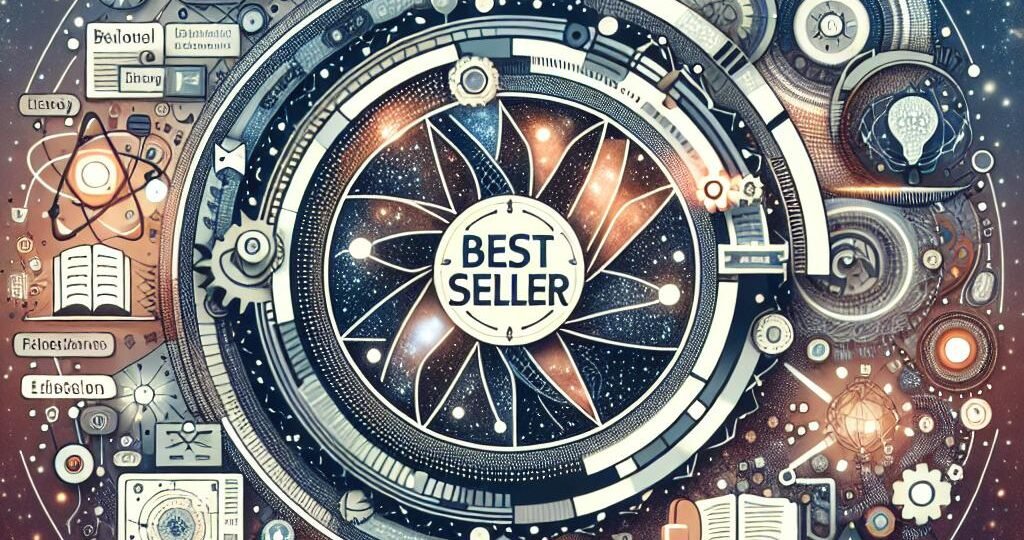In the world of books, the term "best seller" holds a prestigious place. A best seller refers to a book that has sold a significant number of copies, often surpassing other books in its category. But what makes a book a best seller? And why do some books become best sellers while others struggle to make an impact? In this article, we will explore the concept of best sellers, how they are determined, and what sets them apart from the rest.
What makes a best seller?
There are several factors that can contribute to a book becoming a best seller. These include:
-
Compelling content: A best seller typically has a strong storyline or message that resonates with readers. Whether it’s a gripping thriller, a poignant memoir, or a self-help book that offers valuable insights, compelling content is key to capturing the interest of readers.
-
Author platform: Established authors with a loyal fan base are more likely to have best sellers. Authors who already have a large following, whether through previous best sellers, social media presence, or speaking engagements, are in a better position to promote and sell their books.
-
Marketing and promotion: Effective marketing and promotion strategies can make a significant difference in a book’s sales. Publishers often invest in advertising, publicity campaigns, and book tours to generate buzz and attract readers.
-
Timing and trends: The timing of a book’s release can also impact its success. Books that tap into popular trends or address timely issues are more likely to attract attention from readers and the media.
- Word of mouth: Positive reviews, endorsements from influencers, and recommendations from friends can all contribute to a book’s success. Word of mouth is a powerful tool in generating interest and driving sales.
How are best sellers determined?
Best seller lists are compiled by various organizations and publications, such as The New York Times, Amazon, and Publishers Weekly. These lists track the sales of books across different formats (hardcover, paperback, e-books) and categories (fiction, non-fiction, children’s books) to determine which books are selling the most copies.
Best seller lists can vary depending on the criteria used to compile them. Some lists are based on sales data from bookstores, online retailers, and other outlets, while others rely on surveys or expert reviews. Regardless of the methodology, appearing on a best seller list can have a significant impact on a book’s success, leading to increased visibility, credibility, and sales.
Benefits of being a best seller
Being a best seller can offer numerous benefits to authors, publishers, and readers alike. Some of the advantages of having a best seller include:
-
Increased visibility and credibility: Best sellers are often featured in media outlets, bookstores, and online platforms, giving them greater exposure to potential readers. The best seller label can also enhance an author’s reputation and credibility within the industry.
-
Higher sales and revenue: Best sellers typically sell more copies than other books, leading to higher revenue for authors and publishers. The financial success of a best seller can open up new opportunities for future projects and collaborations.
- Expanded readership: Best sellers have the potential to reach a wider audience, attracting readers who may not have been familiar with the author or genre before. This can help to grow the author’s fan base and encourage more people to explore the world of books.
Practical tips for aspiring best sellers
If you aspire to become a best seller, here are some practical tips to help you achieve your goal:
-
Write a compelling book: Focus on creating a book with a unique and engaging story that will captivate readers from the first page. Invest time in developing well-rounded characters, strong plotlines, and memorable scenes.
-
Build your author platform: Develop a strong online presence through social media, author websites, and newsletters to connect with readers and promote your work. Engage with your audience, participate in book events and signings, and seek opportunities to showcase your writing talents.
-
Network with industry professionals: Establish relationships with literary agents, editors, publishers, and other professionals in the publishing industry to gain insights, advice, and support. Attend writing conferences, workshops, and book fairs to connect with like-minded individuals and learn from their experiences.
- Market your book effectively: Create a marketing plan that outlines strategies for promoting your book, such as book tours, blog tours, press releases, and social media campaigns. Leverage the power of book reviews, book clubs, and book influencers to generate buzz and attract readers.
Case study: The power of best sellers
One example of a best seller that has made a significant impact is "The Da Vinci Code" by Dan Brown. Published in 2003, this mystery thriller quickly climbed the best seller lists and became a global phenomenon, selling millions of copies worldwide. The success of "The Da Vinci Code" led to a film adaptation, sequels, and a surge in interest in art history and religious symbolism.
First-hand experience: Becoming a best seller
Author J.K. Rowling experienced firsthand the transformative power of becoming a best seller with her Harry Potter series. Starting with "Harry Potter and the Philosopher’s Stone" in 1997, Rowling’s books became best sellers, captivating readers of all ages with their magical world, relatable characters, and timeless themes. The Harry Potter series went on to sell over 500 million copies, making Rowling one of the best-selling authors of all time.
In conclusion, being a best seller is a coveted achievement in the world of books, representing a combination of compelling content, strategic marketing, and reader engagement. While not every book can become a best seller, aspiring authors can increase their chances by focusing on quality writing, building a strong author platform, and leveraging marketing opportunities. By understanding what makes a best seller and adopting proven strategies, authors can make their mark in the literary world and connect with readers on a global scale.

